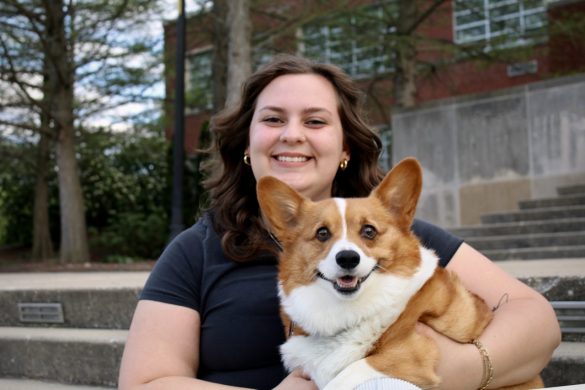Through the recent release of the movie “Priscilla,” the entertainment industry has begun to address one of the biggest “legal crimes” the world faces today: underage or child marriage and grooming. The film follows the story of Priscilla Presley through her time meeting and marrying Elvis Presley. According to an article from USA Today, Priscilla was 14 and a freshman in high school when she met and started dating Elvis—who was 24 at the time. Although child marriage is a global, 41 states in the United States—a “First World Country”—have laws allowing children to get married (in various circumstances), according to advocacy agency Equality Now. Indiana is one of those 41 states, with marriage age requirement laws sometimes allowing those as young as 16-years-old to be wed, per legal research website FindLaw. The State of Indiana needs to readress this issue immediately. Statutes allowing those under 18 to be married are unethical and plainly malicious for a multitude of reasons.
Child marriage is any informal or formal union between a child under 18 and an adult or another child, according to an article by the United Nations International Children’s Emergency Fund. Child marriage affects more than 12 million girls—one in five—on a global scale, according to a study from the National Library of Medicine. In comparison, according to UNICEF, child marriage with boys is one sixth compared to girls. Indiana, among all U.S. states, had the 27th highest number of minors wed between 2000 and 2018, according to the Journal of Adolescent Health. The number is absurd—5,086 children were married. Child marriage is legal in Indiana.
The state’s marriage age requirement law has a few stipulations before a minor can be legally wed, according to FindLaw. Those include permission of a juvenile court judge, the partner being no more than four years older, marriage counseling, and a minimum 15-day waiting period, according to the legal research website. Indiana last made legislative changes to the underage marriage law in 2020. The previous statute allowed children as young as 15 years old to be legally wed with simple parental consent, according to IndyStar. Lawmakers nearly unanimously approved the change to increase the minimum age and to extend consent requirements to include judicial approval, as well. Lawmakers obviously are aware of the issue, and I assume most would be willing to address this situation if it were brought to their attention again, since they almost unanimously approved changes to the law three years ago. Although these were welcome changes, they simply are not strict enough. According to the Journal of Adolescent Health, American foreign policy deems child marriage a “human rights abuse.” Indiana lawmakers should not legally allow any marriage under the age of 18. We must not legally allow active harm to come to children by any means.
Child marriage is unethical for several reasons. According to the UNICEF article, child brides are more likely to experience domestic violence, pregnancy during adolescence, and isolation from friends and family, which often causes mental illnesses. Growing up is hard enough and being isolated from friends and family during this developmental stage in life is just plain cruel. The prefrontal cortex is one of the last parts of the brain to develop, according to an article from the National Institute of Mental Health, which makes adolescence an important time. Skills such as planning, prioritizing and decision making come from the maturing of the prefrontal cortex, according to the NIMH article. A child’s brain is not developed enough for the stress of marriage and parenting. Education, self-confidence, decision making power, childhood, freedom of mobility and social networks are lost due to child marriage, according an article published by the National Library of Medicine’s website. Ultimately, for Indiana to allow minors to wed is unethical, because their brains simply are not mature enough to process adult relationships and duties.
The article from the NIL also stated that low income, pregnancy and parenting challenges caused increased stress. I do not think that a child should be expected to parent another child. According to the Council of Foreign Affairs, child marriage globally worsened during COVID-19 because of the financial crises families were facing. Families would marry off young daughters either to have one less mouth to feed or potentially have financial gain from marrying into a wealthy family, according to the Council on Foreign Relations. Children should not have to worry about being married off if their family experiences hardship.
Grooming, a behavior between an adult and a child which can lead to underage marriage, is when an adult builds trust and an emotional connection with a child in order to manipulate, exploit and/or abuse that child, according to the National Society for the Prevention of Cruelty to Children. There are many types of grooming that can happen both online and in person, according to the NSPCC, and in-person grooming can be done by a stranger, family member, friend, teacher, faith group leader or coach. The effects of grooming on a child can include anxiety, depression, PTSD, eating disorders, difficulty coping and more, according to the NSPCC. In my opinion, allowing child marriage still to exist legally in Indiana encourages grooming to continue to happen.
Those who oppose outlawing underage marriage may cite religious or cultural reasons, according to the CFA, which notes that child marriage traditions and practices are not confined to a single religion. Being a religious practice or cultural tradition does not inherently make something ethical or OK. Lawmakers or constituents defending child marriage along religious or cultural lines are simply promoting human rights abuse under the guise of tradition. We should not allow outdated and harmful customs and laws to harm children.
Child marriage activley works against basic human rights. If the decision-making part of the brain is not fully developed, marriage should not even be considered—let alone all the things that go with marriage. Subjecting a child to the possibilities of isolation, parenting and having to make adult decisions seems plainly unethical. Just 18% of states bar underage marriage completely, which is scant progress toward human rights. Why can Indiana not be one of those states that outlaws the human rights abuse of child marriage? I urge you to contact public representatives in your area (if such laws are still in place there) and press them to abolish these cruel and unethical laws. We have a duty to protect those who cannot protect themselves.








